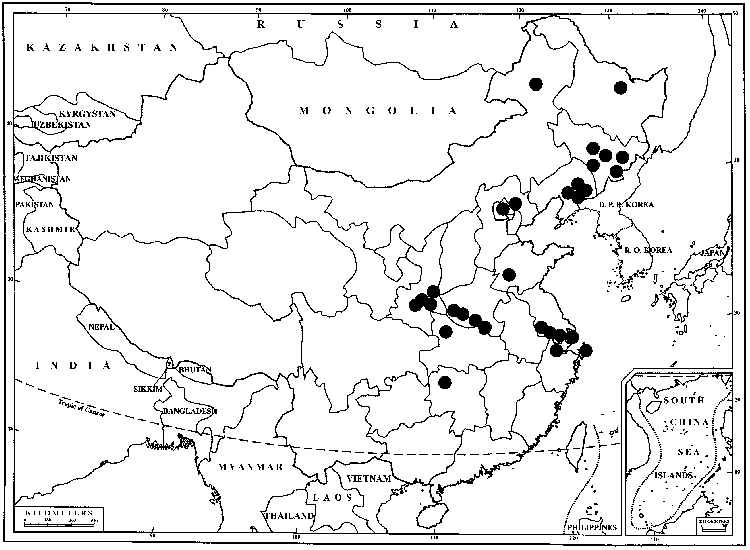Difference between revisions of "Ptychomitrium sinense"
Ber. Thätigk. St. Gallischen Naturwiss. Ges. 1872–1873: 104. 1874,.
imported>Volume Importer |
imported>Volume Importer |
||
| Line 55: | Line 55: | ||
|publication year= | |publication year= | ||
|special status= | |special status= | ||
| − | |source xml=https:// | + | |source xml=https://bitbucket.org/aafc-mbb/fna-data-curation/src/2e0870ddd59836b60bcf96646a41e87ea5a5943a/coarse_grained_fna_xml/V27/V27_422.xml |
|genus=Ptychomitrium | |genus=Ptychomitrium | ||
|species=Ptychomitrium sinense | |species=Ptychomitrium sinense | ||
Latest revision as of 21:26, 5 November 2020
Plants medium size, cespitose, glossy, yellowish green. Stems erect, to 1 cm. Leaves crispate-curled when dry, broadly acuminate, mostly 2.5–4 mm; margins entire distally, plane proximally; apex cucullate to subcucullate. Specialized asexual reproduction absent. Seta 1 per perichaetium, 3–4 mm. Capsule ovoid, 1.5 mm, irregularly wrinkled when dry; peristome teeth divided into triangular segments, smooth. Calyptra lobes half or more length of calyptra.
Phenology: Capsules mature Jan–Jun.
Habitat: Basic and acidic rocks, occasionally soil or wood, forests
Elevation: low to high elevations (100-2000 m)
Distribution

Ariz., Ark., Mo., N.Mex., Okla., Tex., Mexico, Asia.
Discussion
Plants of Ptychomitrium sinense are dark green and glossy; the leaves are tightly crispate when dry with the tips often circinate. The glossy pale or often brownish costa is very conspicuous in dry plants and is especially characteristic for this moss. When moist the leaf tips tend to be involute-cucullate and often falcate or somewhat uncinate.
Selected References
None.